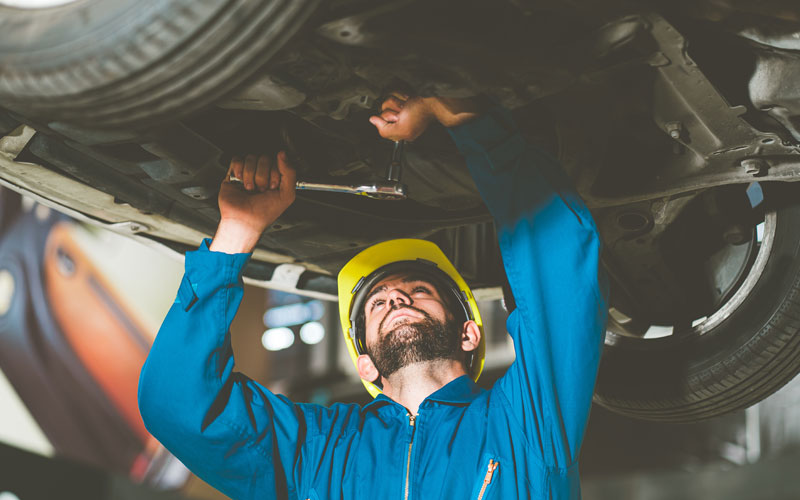Generally speaking, vehicle manufacturers do everything they can to ensure that the cars they build are meeting the highest mechanical and safety standards, often times exceeding those standards. Still, cars are machines with many moving parts, and some things can get overlooked and unforeseen problems can arise well after the vehicle is made available for sale. To address these issues, auto manufacturers will issue a vehicle safety recall. Let’s take a look at why recalls are issued and how it is ultimately the responsibility of the owner of the vehicle to keep up to date on these recalls and to get any issues corrected.
Why Vehicles are Recalled
Vehicles can be recalled for any number of mechanical reasons, but the most common type of recall is a safety recall, because, left untreated, these mechanical issues could lead to the serious injury or death of the driver and/or passengers. Safety recalls usually happen when a vehicle manufacturer, auto manufacturer supplier, or the National Highway Traffic Safety Administration (NHTSA) determines that a safety-related issue exists. When this is determined, NHTSA and federal regulations require that the manufacturer inform their customers by mail.
Mail Notifications of a Safety Recall
If a safety recall is being performed for a vehicle that you own, you should receive a recall letter in the mail from the manufacturer. This letter will include information regarding the recall, such as:
- A description of the defect(s),
- The risks associated with driving the vehicle, including the kinds of injuries that could occur from not getting the defect corrected,
- The manufacturer’s plan to fix the problem, and
- Instructions on what you should do next.
Although federal regulations require a notification by mail, the truth is that, in some cases, you may not receive it or you may just overlook it. Luckily, there is an online resource where you can check for any open recalls on your vehicle.
VIN Search Tool
You can check the status of your vehicle and look for any open recalls with NHTSA’s VIN search tool. Your Vehicle Identification Number (VIN) is a 17-character number comprised of both alpha and numeric characters.
The most common places to find your VIN is the driver’s side interior dash (visible through the vehicle’s windshield) or inside of the driver’s side door pillar.
The Cost of Safety Recalls
When a safety recall is initiated, federal law requires the manufacturer to do one of three options for correcting the issue:
- Repair the issue at no cost to the owner.
- If the problem cannot be fixed, the manufacturer can replace the malfunctioning vehicle with another vehicle — either identical or similar in model.
- Finally, the manufacturer could instead choose to refund the purchase price of the vehicle.
Repairing the issue is, by far, the most common course of action in a vehicle recall. To reiterate, these issues are repaired at no cost to the owner of the vehicle.
The Importance of Safety Recalls
It is imperative that you stay informed on any safety recalls of every vehicle that you own. You do not want to be driving a car with a potentially dangerous and life-threatening mechanical issue that the manufacturer is willing to fix at no cost to you. Getting these issues fixed should be a priority to ensure that your vehicle is safe, reliable, and in good working condition every time you drive it down the road.





![The Importance of Preventative Maintenance [video]](https://www.integrityautofinance.com/wp-content/uploads/2022/05/importance-regular-maintenance-2022-450x189.jpg)





